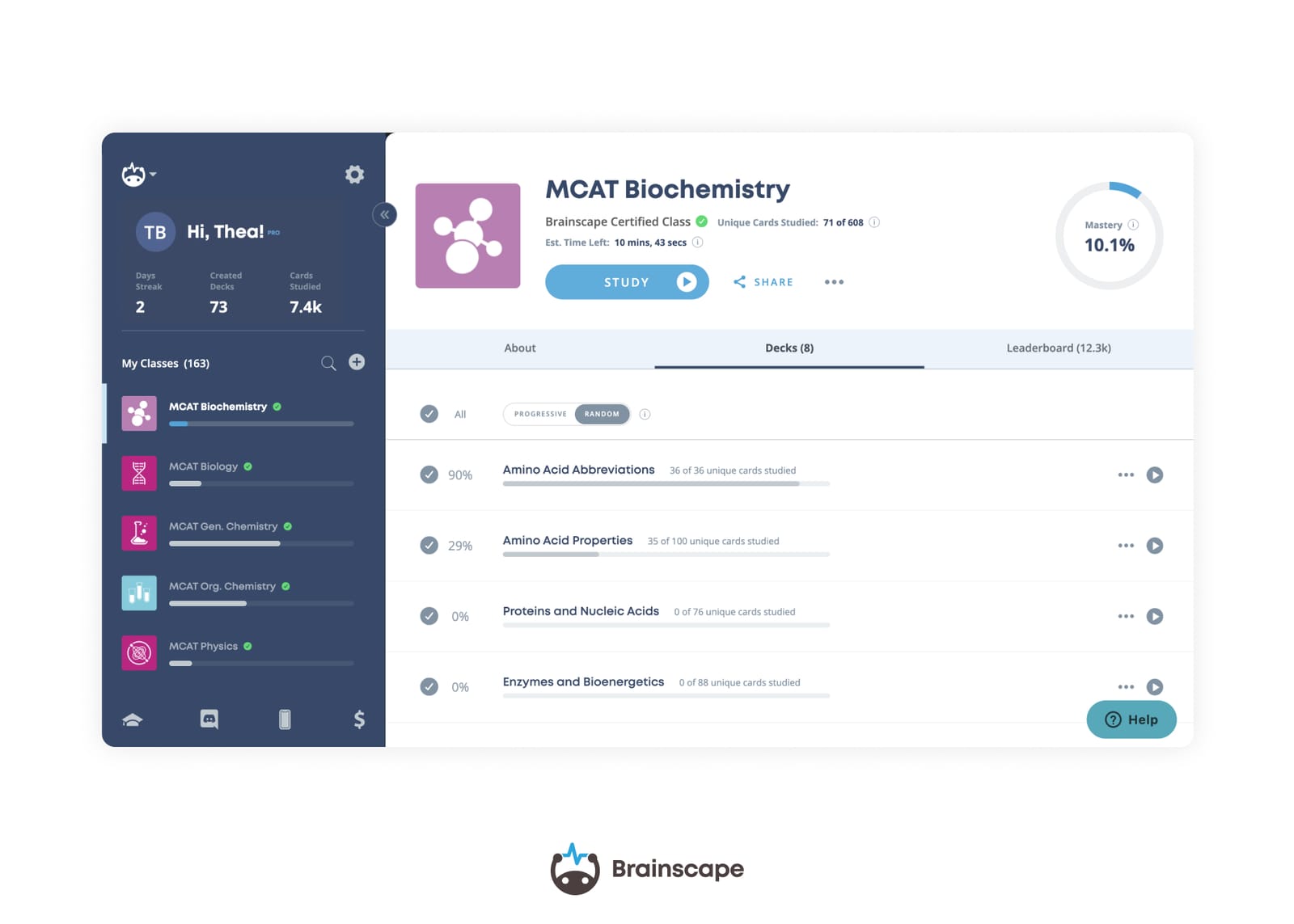How hard is medical school? Well, we hate to say it, but the answer is that medical school is a massive challenge.
It’s an experience that’s meant to weed out those who can’t handle the pressure and responsibility that it takes to have people’s lives in their hands.
But with hard work and the right preparation, you can get through it. In the spirit of preparation, we reached out to some current medical school students, doctors, and educational forums to bring together a list of the hardest parts of medical school.
This article will help you not only answer whether medical school is hard, but also which parts students struggle with the most.
The 6 Hardest Parts Of Medical School
1. Achieving Balance
One theme that comes up, again and again, is that balance is exceptionally difficult to achieve as a med school student. Med school is something you could compare with a marathon that keeps going and going. Every hour that you don’t spend studying could be a big hit to your ability to keep up with the material. Saying goodbye to unstructured free time is a big issue, and even maintaining simple good habits like exercise and proper diet for brain health can be tough.
2. Time Management
A similar issue that many med school students and doctors speak out about is time management. Many med school students have a great deal of work to do just to stay on top of things. One poster on studentdoctor.net wrote that the hardest thing about med school is “accepting the fact that you can do your absolute very best and study your tail off only to barely break the class average on exams.” Another wrote that one of the challenges is accepting the fact that you’ll never cross everything off your to-do list.
One of the best ways to manage your limited time in medical school is to make your studying more efficient. That’s where digital flashcard apps like Brainscape and Anki come in. Using a proven spaced repetition system, these apps help you internalize complex information faster and more effectively, so you can get more done in less time.

You can study in short bursts on your phone, tablet, or computer, and the app tracks your progress so you always know what to review next. It’s a powerful way to maximize your learning without burning out.
3. Life Outside Of Medical School
Another common issue is social isolation. Free time often becomes a thing of the past when you start med school, so relationships can suffer. If you’re used to getting a lot of social support, having plenty of time to hang out with friends and family, and attending lots of parties and functions, you’ll probably miss that after starting school. Medical students also have to deal with a lot of change and uncertainty. Often, going to med school involves moving to a new city. Then, just a few years later, residencies mean moving again (and again, and again). It’s not a good formula for a life of uninterrupted stability.
4. The Board Exams
The board exams to become a certified medical doctor are universally regarded as one of the most difficult parts of medical school. The first exam, the USMLE Step 1, is one of the hardest. Luckily, your knowledge of basic medical science will be about as good as it’s ever going to be at this point. You’ll have the ability to pass the test if you’ve studied hard and will be able to move on. The Step 2 exam (usually taken during the 3rd or 4th year) and the Step 3 final exam (usually taken during the 4th year or after graduation) will provide serious challenges as well.
5. Starting Clinical Practice
The third year is a big transition for most medical school students, since you’ll likely be transitioning to being a working student, and you’ll be interacting with patients extensively for the first time. This brings a whole new set of challenges around communication, professionalism, and workplace relationships. It’s almost certain that 3rd year will be a humbling experience in which you spend a lot of time listening to and learning from those who are older and more experienced than you are.
This video from students at Albert Einstein College of Medicine is a good introduction to this subject:
6. Memorization
The amount of knowledge that one is supposed to learn in medical school is huge. Many classes will come with 1,000 pages (or more) of material that you’re supposed to memorize. Taking in that amount of information has been described as trying to drink out of a fire hose. If you’re not careful, it will blow you away. To many students, the simple problem of memorizing and retaining information is among the most difficult parts of medical school.
That's why digital flashcard apps are a great companion for med school students. Put simply, they help you memorize faster. Digital flashcard apps have been proven to result in higher scores on the USMLE and MCAT, and higher test scores in medical school. As an added bonus, they increase the likelihood of users to start studying by taking out the boring logistics of deciding what to study.
Is Medical School Hard? Yes, But Hang In There
Is medical school hard? Absolutely.
But it's also very doable. If you got into medical school, you're smart: you got good grades in your first degree, you wrote a great MCAT, and you were accepted. You've definitely got what it takes.
Now you just have to prepare yourself for the next marathon. Create good study habits, develop a good school-life balance, and find study tools that work for you. If you do these things, you can make it through medical school.
Start now.
Additional Reading
- The #1 Habit To Succeed In Medical And Nursing School
- The Top 13 Apps For Medical School Students
- Top Med School Admissions Tips
References
Deng, F., Gluckstein, J. A., & Larsen, D. P. (2015). Student-directed retrieval practice is a predictor of medical licensing examination performance. Perspectives on Medical Education, 4(6), 308–313. https://doi.org/10.1007/s40037-015-0220-x
Karpicke, J. D. (2012). Retrieval-based learning: Active retrieval promotes meaningful learning. Current Directions in Psychological Science, 21(3), 157-163.
Kang, S. H. (2016). Spaced repetition promotes efficient and effective learning. Policy Insights from the Behavioral and Brain Sciences, 3(1), 12–19. https://doi.org/10.1177/2372732215624708
Kerfoot, B. P., Shaffer, K., McMahon, G. T., Baker, H., Kirdar, J., Kanter, S., Corbett, E. C., Berkow, R., Krupat, E., & Armstrong, E. G. (2011). Online “spaced education progress-testing” of students to confront two upcoming challenges to medical schools. Academic Medicine, 86(3), 300–306. https://doi.org/10.1097/acm.0b013e3182087bef
Kornell, N., Hays, M. J., & Bjork, R. A. (2009). Unsuccessful retrieval attempts enhance subsequent learning. Journal of Experimental Psychology: Learning, Memory, and Cognition, 35(4), 989–998. https://doi.org/10.1037/a0015729
Orbell, S., & Verplanken, B. (2010). The automatic component of habit in health behavior: Habit as cue-contingent automaticity. Health Psychology, 29(4), 374.
